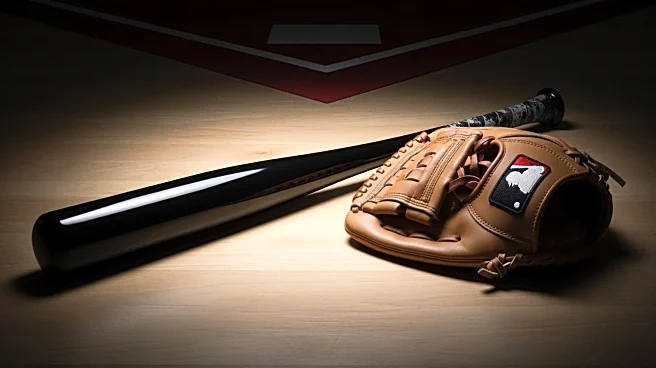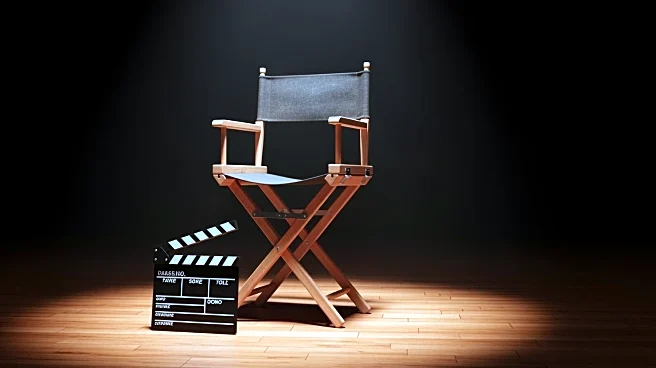What's Happening?
Kim Hye-seong, a player for the Los Angeles Dodgers, has been named to the MLB rookie second team. The selection was announced by MLB Pipeline, which chose 24 players for the rookie teams, with 12 players each for the first and second teams. Kim Hye-seong was recognized
for his performance at second base, although he did not make the first team. The first team included players such as Luke Keaschall from the Minnesota Twins, who was selected over Kim Hye-seong despite missing three months due to a fractured forearm. Keaschall played 49 games with a .302 batting average and was the only rookie with over 200 plate appearances to record an above-average wRC+. Kim Hye-seong played 71 games, batting .280 with three home runs and 17 RBIs, but a significant portion of his appearances were as a substitute.
Why It's Important?
The selection of Kim Hye-seong to the MLB rookie second team highlights his contribution to the Dodgers and his potential as a rising star in Major League Baseball. This recognition is significant for the Dodgers, as Kim was the only rookie from the team to be selected, showcasing the depth of talent within their roster. For Kim, being named to the rookie team is a notable achievement, especially as he is only the second Korean player to receive this honor since the rookie team selections began in 2020. This could enhance his visibility and career prospects within the league, potentially leading to more opportunities and endorsements.
What's Next?
Kim Hye-seong's future in MLB looks promising, and his performance this season could lead to increased playing time and a more prominent role within the Dodgers. As he continues to develop his skills, he may aim to secure a spot on the first team in future seasons. The Dodgers may also look to leverage his talent in their strategies for upcoming games and seasons. Additionally, Kim's recognition could inspire other Korean players and contribute to the growing presence of international talent in MLB.
Beyond the Headlines
Kim Hye-seong's selection underscores the increasing diversity and international representation in Major League Baseball. As more players from different countries make their mark in the league, MLB continues to expand its global reach and influence. This trend may lead to more international collaborations and exchanges, enriching the sport culturally and competitively.
















